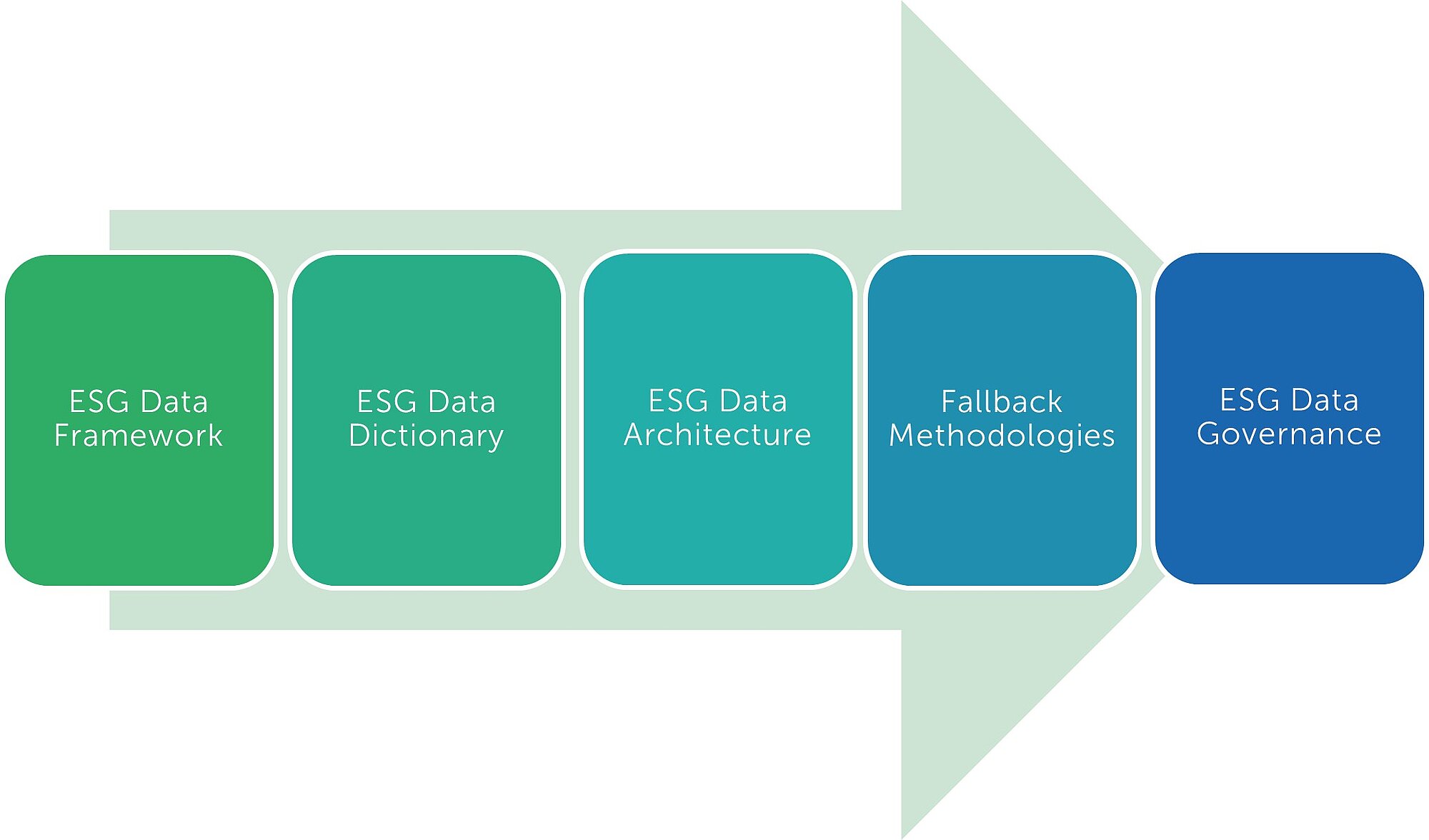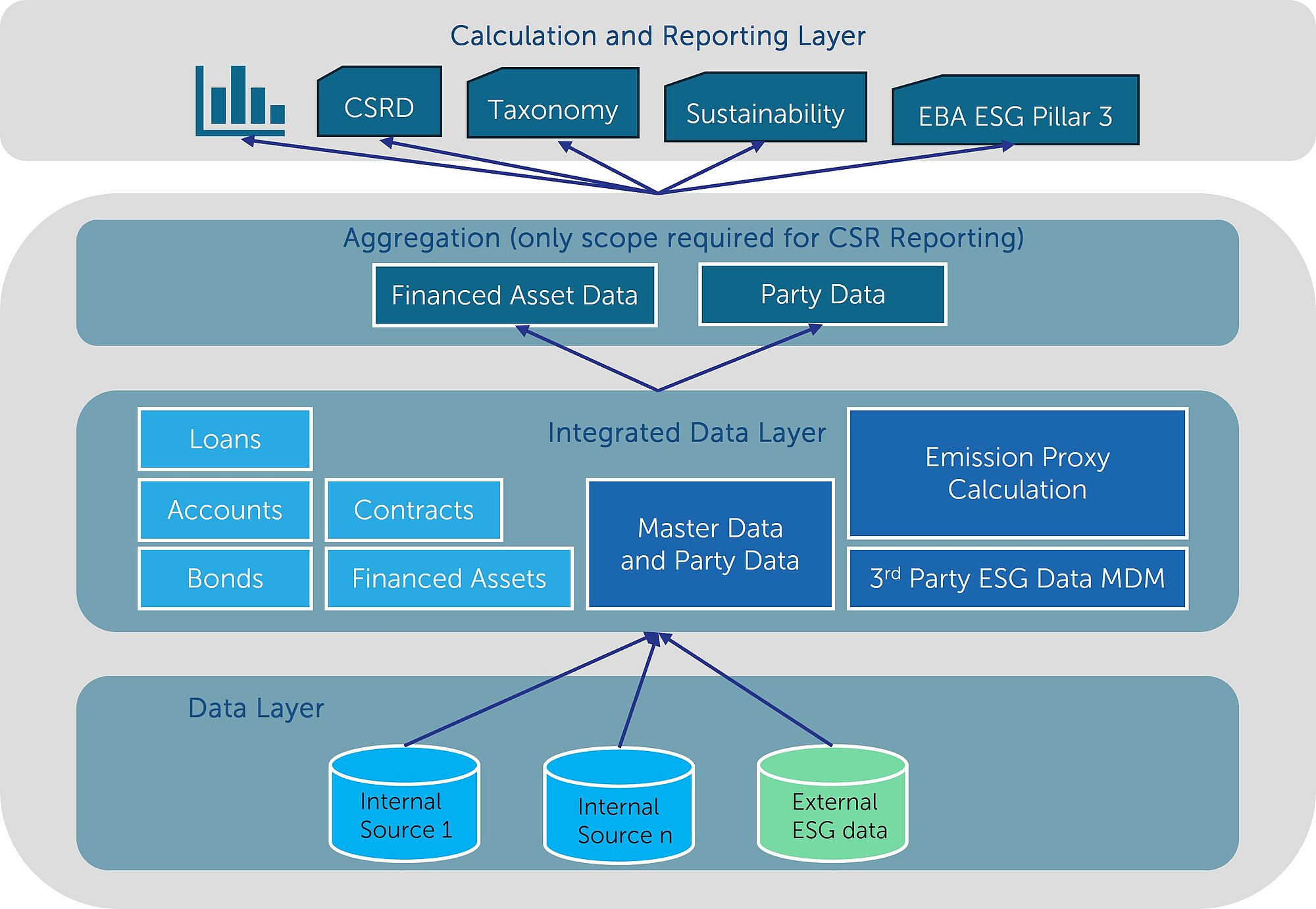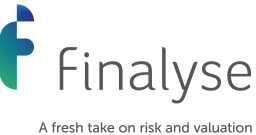Related Articles
How Finalyse can help
ESG Data Management for ESG Reporting
ESG reporting entails the comprehensive disclosure of a company's performance across environmental, social, and governance (ESG) factors. In recent years, ESG reporting has become a vital element of the corporate transparency and responsibility. European banks and insurers must navigate a complex web of regulatory requirements governing ESG reporting. By gaining a comprehensive understanding of the scope, timelines, reporting frameworks, and obligations associated with initiatives like CSR reporting, the EU Taxonomy, Pillar 3 ESG reporting, and CSRD, financial institutions can strategically align their approaches and disclosures with evolving standards and expectations of stakeholders.
Effective ESG data management is essential for accurate and transparent ESG reporting, enabling organizations to demonstrate their commitment to sustainability, social responsibility, and ethical governance. Simplifying ESG data management, including the development of a central ESG data warehouse, robust data architecture, comprehensive data dictionary, methodologies for addressing data gaps, and stringent data governance, is essential for managing and disclosing ESG risks.
Finalyse possesses extensive expertise in sustainability and climate-related disclosures, enabling us to assist financial institutions in navigating the evolving ESG Reporting and ESG Data Management landscape.
How does Finalyse address your challenges?
ESG Data Management
We develop a robust framework, data architecture and model to ensure the integrity and reliability of ESG data.
Data Collection and Integration
We help integrate data from multiple sources to simplify report creation.
Creation of Data Dictionary
We craft a comprehensive data dictionary to encompass variables, delineating their definitions and units. We also do the advanced taxonomy mapping to align with various disclosure formats.
Workshops
We conduct workshops for senior stakeholders to promote an understanding of the key principles, reporting obligations, and timelines within the ESG regulation landscape.
Disclosure Accuracy
For the Report verification, we use comprehensive and agile approval workflows.
Governance
We establish a clear governance structure with defined roles and responsibilities within the organisation related to ESG data management and reporting.
Educational workshop
Build a centralized ESG data management framework that ensures transparency, accuracy, and regulatory compliance with sustainability standards.
Our workshop equips your team with the knowledge and expertise needed to establish a robust framework for accurate risk disclosure, aligning with regulations while showcasing your commitment to sustainability. In this interactive session, we’ll cover methodologies for centralizing ESG data, addressing gaps, and creating a centralized DataMart and data dictionary.
Our experts will provide actionable strategies to tackle challenges like ESG data collection, data governance, and data inconsistencies - tailored for organizations prioritizing ESG compliance and transparency.
How does it work in practice?
Environmental, Social, and Governance (ESG) reporting has emerged as a critical aspect of corporate transparency and sustainability. Across the globe, companies are increasingly recognising the imperative of disclosing their performance in these areas to stakeholders. ESG reporting goes beyond financial metrics, providing insights into a company's impact on the environment, society, and governance practices.
For financial institutions seeking to disclose ESG information, accuracy, automation, and auditability lay at the core of sound ESG reporting practices.
A holistic approach to ESG data management, including investment in technology, development of data methodologies, data governance frameworks, capacity building, stakeholder engagement, and collaboration with industry peers and stakeholders, is required.
Below is a comprehensive guide and best practices that provide a structured roadmap to assist financial institutions in effective ESG data management, which is required to master ESG reporting.

Additionally, below illustration highlights the automation and data framework set-up required for effective ESG Data Management:

Key Features
- Ensure efficient ESG data management and reporting.
- Govern gaps related to ESG data and prioritise action plans to mitigate them. To address missing data, build central or local proxy methodologies.
- Define standardised frameworks to ensure data quality.
- Model data related to financed asset (compared to collateral data use for credit risk)
- Ensure consistency amongst financial and sustainability regulatory reports. (For Instance, alignment with Corep or Finrep)
- Benefit from Finalyse’s unique approach, tailored to the specific needs and circumstances of each financial institution.

Hugo is a Principal Consultant in Finalyse Brussels. He has a wide knowledge and expertise in financial products, valuation algorithms, reporting and regulatory issues. He combines in depth knowledge of banking financial risks and regulations with a wide understanding of the data, IT infrastructure and processes underneath. Hugo has been involved in multiple Risk and Regulatory Reporting implementation projects such as RWA calculation for credit risk, EAD calculation under SACCR, automation of internal reports for ALM and implementation of data governance to comply with BCBS239. Hugo is an experienced Agile project manager who stands-out for his dynamism, adaptability and interpersonal skills.

Alvin is a Senior Consultant based in Brussels. He brings a wealth of experience in banking knowledge and IT applications. He has been contributing to developing Finalyse's data management toolkit and ESG reporting infrastructure, leveraging expertise in BCBS239. His proficiency extends to ESG metrics, regulatory reporting, and data quality management, ensuring clients receive top-tier solutions for their complex needs. With a strong foundation in both the technical and regulatory aspects of banking, Alvin is dedicated to help organisations navigate and excel in today's challenging financial landscape and regulatory requirements.

Meghna Jain is a senior consultant based in Finalyse Brussels with expertise in identification and assessment of environmental and climate-related risks across portfolios and integrating climate-related risks within the overall risk systems of the financial institution. She has extensive experience with a large European Banks in building scenarios, developing and carrying C&E risk assessments, setting risk appetites, modelling transition risk and physical risks for banks and ESG/climate reporting.
Finalyse InsuranceFinalyse offers specialized consulting for insurance and pension sectors, focusing on risk management, actuarial modeling, and regulatory compliance. Their services include Solvency II support, IFRS 17 implementation, and climate risk assessments, ensuring robust frameworks and regulatory alignment for institutions. |

Our Insurance Services
Check out Finalyse Insurance services list that could help your business.
Our Insurance Leaders
Get to know the people behind our services, feel free to ask them any questions.
Client Cases
Read Finalyse client cases regarding our insurance service offer.
Insurance blog articles
Read Finalyse blog articles regarding our insurance service offer.
Trending Services
BMA Regulations
Designed to meet regulatory and strategic requirements of the Actuarial and Risk department
Solvency II
Designed to meet regulatory and strategic requirements of the Actuarial and Risk department.
Outsourced Function Services
Designed to provide cost-efficient and independent assurance to insurance and reinsurance undertakings
Finalyse BankingFinalyse leverages 35+ years of banking expertise to guide you through regulatory challenges with tailored risk solutions. |

Trending Services
AI Fairness Assessment
Designed to help your Risk Management (Validation/AI Team) department in complying with EU AI Act regulatory requirements
CRR3 Validation Toolkit
A tool for banks to validate the implementation of RWA calculations and be better prepared for CRR3 in 2025
FRTB
In 2025, FRTB will become the European norm for Pillar I market risk. Enhanced reporting requirements will also kick in at the start of the year. Are you on track?
Finalyse ValuationValuing complex products is both costly and demanding, requiring quality data, advanced models, and expert support. Finalyse Valuation Services are tailored to client needs, ensuring transparency and ongoing collaboration. Our experts analyse and reconcile counterparty prices to explain and document any differences. |

Trending Services
Independent valuation of OTC and structured products
Helping clients to reconcile price disputes
Value at Risk (VaR) Calculation Service
Save time reviewing the reports instead of producing them yourself
EMIR and SFTR Reporting Services
Helping institutions to cope with reporting-related requirements
CONSENSUS DATA
Be confident about your derivative values with holistic market data at hand
Finalyse PublicationsDiscover Finalyse writings, written for you by our experienced consultants, read whitepapers, our RegBrief and blog articles to stay ahead of the trends in the Banking, Insurance and Managed Services world |

Blog
Finalyse’s take on risk-mitigation techniques and the regulatory requirements that they address
Regulatory Brief
A regularly updated catalogue of key financial policy changes, focusing on risk management, reporting, governance, accounting, and trading
Materials
Read Finalyse whitepapers and research materials on trending subjects
Latest Blog Articles
Contents of a Recovery Plan: What European Insurers Can Learn From the Irish Experience (Part 2 of 2)
Contents of a Recovery Plan: What European Insurers Can Learn From the Irish Experience (Part 1 of 2)
Rethinking 'Risk-Free': Managing the Hidden Risks in Long- and Short-Term Insurance Liabilities
About FinalyseOur aim is to support our clients incorporating changes and innovations in valuation, risk and compliance. We share the ambition to contribute to a sustainable and resilient financial system. Facing these extraordinary challenges is what drives us every day. |

Finalyse CareersUnlock your potential with Finalyse: as risk management pioneers with over 35 years of experience, we provide advisory services and empower clients in making informed decisions. Our mission is to support them in adapting to changes and innovations, contributing to a sustainable and resilient financial system. |

Our Team
Get to know our diverse and multicultural teams, committed to bring new ideas
Why Finalyse
We combine growing fintech expertise, ownership, and a passion for tailored solutions to make a real impact
Career Path
Discover our three business lines and the expert teams delivering smart, reliable support


